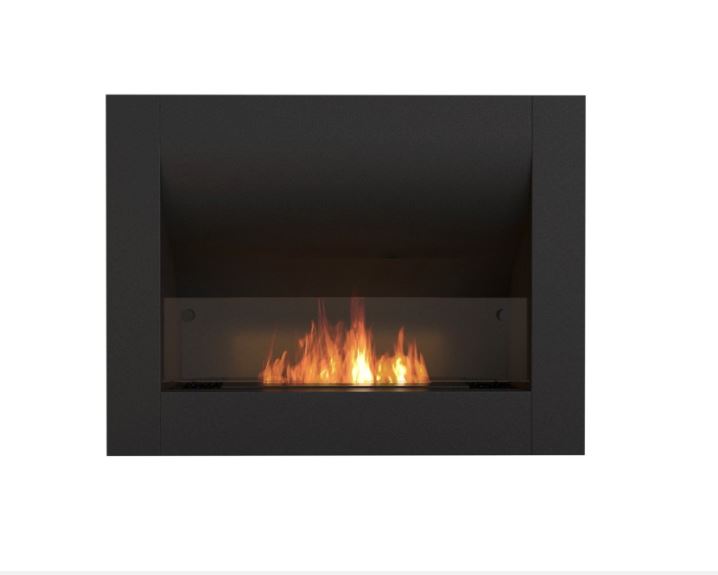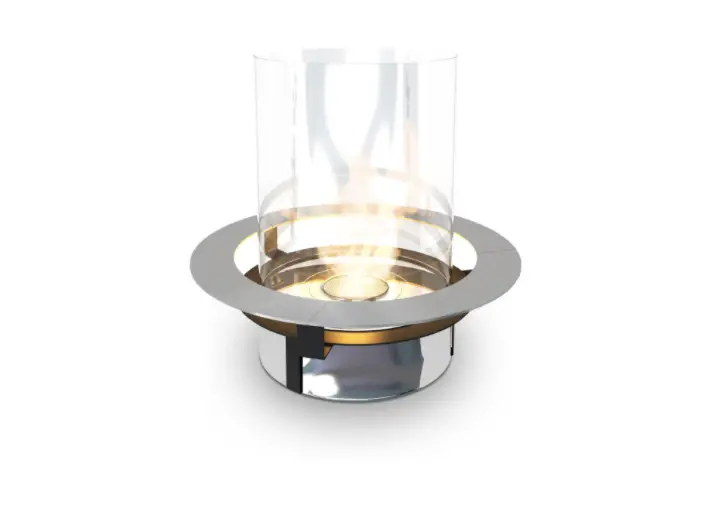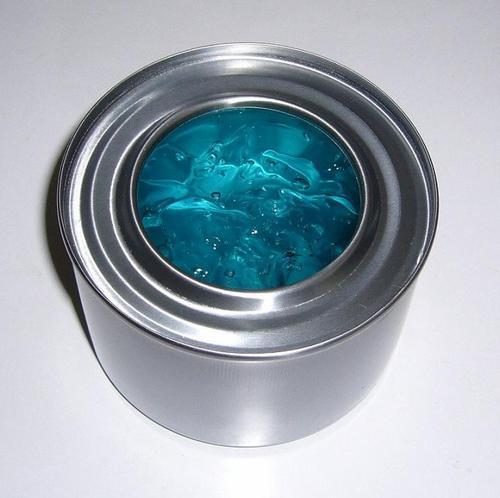Ventless ethanol fireplaces are among the most recommended types of fireplaces in the world. Why so? Ethanol is a bio-fuel thus one of the safest and cleanest alternatives to wood available. It is not because you can drink it, NO!
When it comes to burning ethanol does not have pollutants, carbon monoxide, or any other impurities that are produced from burning wood or gas. This can only happen if you buy your ventless ethanol fireplace from a reputable manufacturer.
Do Ethanol Fireplaces Give Off Carbon Monoxide?
This is a big advantage for using ventless ethanol fireplaces. The ethanol fireplaces have proven to be safer than the wood-burning fireplace as they do not produce cancer-causing byproducts.
Also, wood-burning fireplaces produce carbon monoxide which is a health concern for human beings. When burning ethanol only three things are produced. These include heat, water, and carbon dioxide. The products pose no concerns as the carbon dioxide is produced in trace elements.
Ethanol Fireplaces Pros and Cons
Ethanol fireplaces have continued to become popular in the fireplace market. What makes them popular. Here are the pros and cons you can look at so as to decide if they are the right fit for you.
Pros
- If you love the look of a traditional fireplace, an ethanol fireplace can give you that real flame ambiance too. Also, this is without production of soot, smoke or odor.
- Ethanol fireplaces are simple and easy to operate. You just need to fill the tank with ethanol fuel and then light it.
- Ventless ethanol fireplaces are not necessitated for installation on the home structure. This is because they do not need a vent.
- They can be placed in any room of the home since they are portable.
- If you do not have enough floor space, there are options of tabletop or wall mounted ethanol fireplaces.
- They are durable and last for years with proper service. This is because they are made of strong materials such as stainless materials.
Cons
Let us look at some of the drawbacks with an ethanol fireplace;
- Ethanol fireplaces can not be used to supplement your home’s heating system. They do not produce large enough amounts of heat to heat a full home.
- Ventless ethanol fireplaces use the room they are placed in as flue.
- Trace elements of carbon dioxide produced are dangerous when inhaled by human beings.
- A simple accident can result in a large fire in your house.
What Are The Safety Tips For Using A Ventless Ethanol Fireplace?
Here are important tips to have when lighting and using an ethanol fireplace;
- Do not use an ethanol fireplace in a small room or a tightly sealed house.
- When purchasing one, make sure it is UL certified. This will ensure you buy a quality product.
- Open windows or have a carbon monoxide detector when using them in small rooms or houses.
- Always use ethanol fuel as that was what your appliance was created for. Avoid using substitute fuels.
- Do not place ethanol fireplaces near blankets, sofas, or anything that can catch fire easily.
- Avoid touching the fireplace while it is still running. Let it cool down before you can move it.
- Make sure the fireplace is never left unattended
Ethanol Fireplace Vs Wood
Both ethanol and wood-burning fireplace provide great options for your home. Some of you may find it difficult choosing between the two. The two have their positive and negative sides. We already know about the pros and cons of ethanol fireplaces. Let us look at the pros and cons of a wood-burning fireplace and see how they compare.
Pros of wood-burning Fireplaces
- They can be used in areas with no electricity.
- The flames they produce are relaxing and soothing.
- They give the house an authentic traditional look.
- They provide enough heat for large rooms and houses.
Cons of Wood-burning Fireplaces
- Wood-burning fireplaces produce toxic gases during combustion. You are advised to ventilate your room well to avoid the accumulation of such gases.
- The fireplaces consume oxygen thus you have to provide a path for oxygen entrance into your room.
- Time-consuming as you are required to chop wood and lighting them is a process.
- They need frequent cleaning and maintenance. If you do not do so, they will look messy and reduce their efficiency in heating the house.
- A lot of heat is lost through the chimney of such fireplaces.
Are Ethanol Fireplaces Expensive To Run?
Typically, a liter of ethanol will last for around 4 hours burning comfortably. The price of ethanol varies depending on your location and the quantity. The average price per litre is around $10. The price is subject to change. So, to run an ethanol fireplace you will need $2.5 per hour.
What are the prices for the other types of fireplaces? For a natural gas fireplace, you will spend $0.50 per hour for a 40,000 BTU fireplace. For the same unit of a propane fireplace, you will spend around $1.60 per hour.
A wood-burning fireplace is a little bit more expensive costing you around $3 per hour. The prices are almost the same, however, looking at the purchasing price and installation, ethanol fireplaces win in the long run.
Conclusion: Do Bioethanol Fires Give Off Fumes?
Ventless ethanol fireplaces are among the safest options available in the market. They do not produce any toxic fumes that could be a concern for your health. Heat, water, and carbon dioxide are produced when you burn ethanol. There is carbon dioxide, however, is in small amounts. Make sure you ventilate your room to avoid any risks that come with carbon dioxide.


